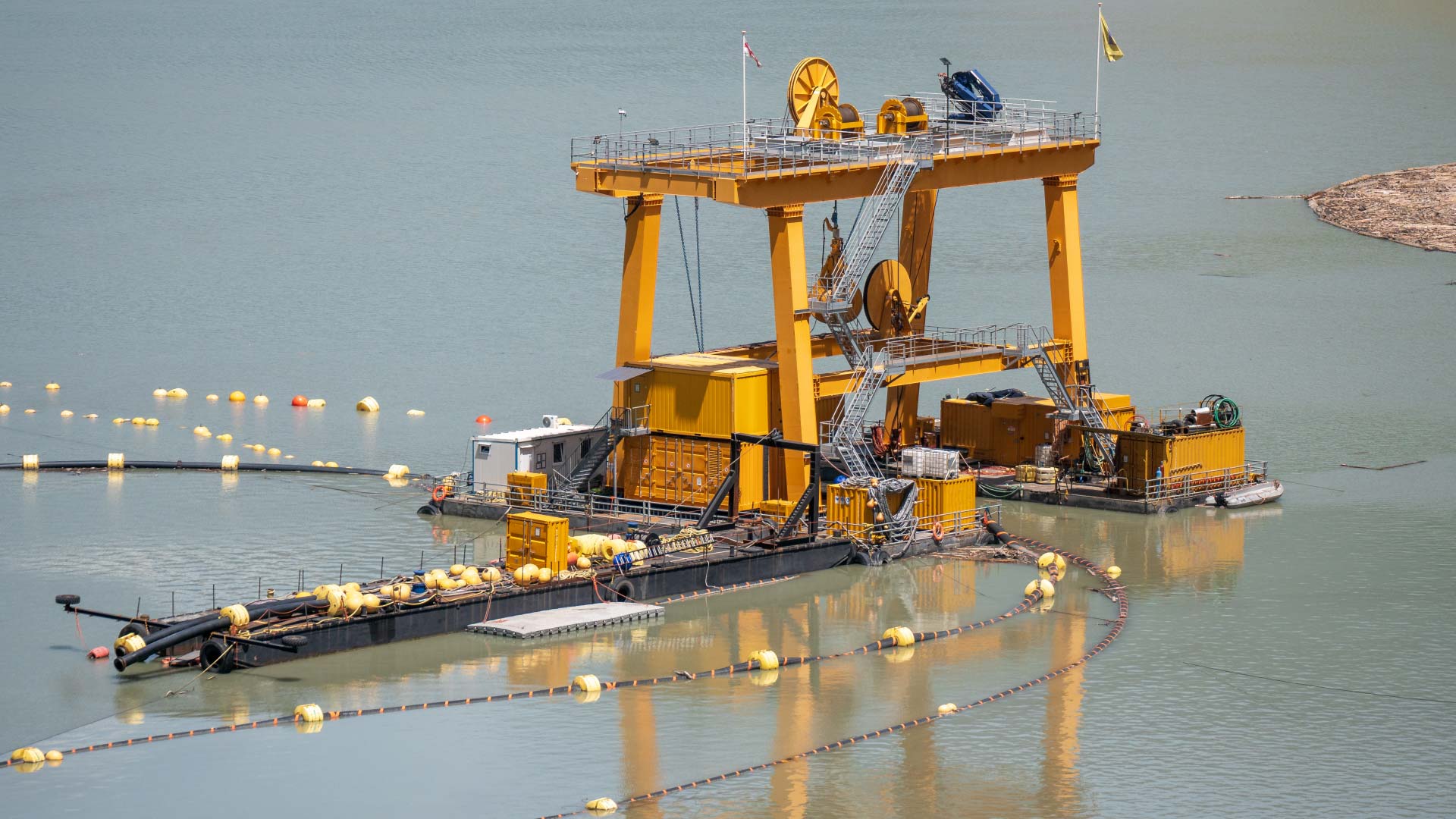The Impact of Silt Accumulation on Water Storage Facilities
As the rainy season nears, the importance of desilting water storage dams and process reservoirs is becoming increasingly urgent. Accumulated silt significantly reduces the capacity of these facilities, posing a risk of overflow and severe environmental consequences. Integrated Pump Rental (IPR), a leading specialist in dewatering pump solutions, urges operators to act swiftly to desilt their water storage systems in preparation for heavy rainfall.
Silt buildup in water storage facilities not only diminishes their capacity but also hinders the effective management of water resources during the rainy season. Left unchecked, this accumulation can result in overflows that cause environmental damage and disrupt operations.
Why Desilting Water Dams is Essential
According to Lee Vine, Managing Director of IPR, the dangers associated with silt buildup are substantial. “Many water storage facilities are already at or near their maximum capacity due to silt deposits,” he explains. “With the approaching heavy rains, the consequences could be disastrous if these dams are not properly maintained.”
Maintaining optimal storage volumes in water storage dams, settlement ponds, and reservoirs is critical to avoiding overflow. Regular desilting helps preserve the storage capacity needed to handle high inflows during periods of intense rainfall.
The Growing Demand for Desilting Solutions
As industries become more proactive in managing their water storage facilities, IPR has seen increased demand for its SlurrySucker desilting solution. The SlurrySucker has proven effective in various industries where water recycling and process activities rely on properly maintained settlement ponds.
The Role of the SlurrySucker in Desilting Operations
The SlurrySucker is specifically designed for high-performance desilting. With a powerful pump capable of handling large volumes of solids, this solution is ideal for removing silt, coal slurry, sand, and other high-solids materials from water storage facilities. “Traditional methods, such as manual excavation, have proven inefficient and often fail to remove the necessary sediment volume,” Vine notes. “A more systematic approach is required for effective and cost-efficient desilting.”
Challenges in Desilting Water Storage Facilities
While desilting is essential, it is not without challenges. Pumping high solids material from storage facilities requires specialized equipment to ensure efficiency and environmental safety.
The Importance of Properly Specified Equipment
Using incorrectly specified equipment for desilting can lead to reduced operational efficiency and potential environmental harm. Traditional methods, such as manual excavation, often fail to remove enough sediment, which can leave facilities vulnerable to overflow during the rainy season.
IPR’s Systematic Approach to Desilting
IPR’s team of dewatering experts begins each desilting project with a thorough site assessment to understand the specific needs of the facility. This process involves determining whether the solids should be pumped to a nearby reservoir or captured in geotextile bags, which allow water to be separated from the solid material.
Tailored Solutions for Every Desilting Project
Based on the assessment, IPR determines the best course of action for desilting. The SlurrySucker requires a sufficient volume of water to operate effectively. In cases where water levels are low, a hydro-mining solution may be employed to manage the drier areas of the pond or dam.
High-Performance Desilting with the SlurrySucker
The SlurrySucker is engineered for maximum performance, equipped with a robust pump that can handle a variety of high-solids materials. When dealing with particularly dry slurry, monitoring guns are used to direct the material toward the discharge point. Additionally, specialized pumps with chopper blades can be added to handle plant debris, such as reeds, making the system even more versatile.
Environmental and Safety Benefits of the SlurrySucker
One of the key advantages of the SlurrySucker is its ability to be operated remotely, keeping personnel at a safe distance from the water’s edge. This feature not only enhances safety but also reduces the environmental impact of the desilting process.
Locally Manufactured and Available for Rent
The SlurrySucker is manufactured locally by IPR and is available for rent, offering an environmentally friendly, cost-effective solution for operators looking to desilt their facilities before the rainy season. “We are committed to helping operators take the necessary steps to ensure their water storage facilities are properly desilted,” says Vine. “The SlurrySucker offers a safer, more efficient alternative to traditional desilting methods.”
Conclusion: Act Now to Avoid Risk
With the rainy season fast approaching, the urgency to desilt water storage facilities is higher than ever. By taking proactive steps to clear accumulated silt, operators can mitigate the risk of overflow and ensure the continued efficiency of their water management systems. The SlurrySucker provides an efficient, cost-effective, and environmentally friendly solution to desilting, allowing operators to prepare for the heavy rains ahead.
